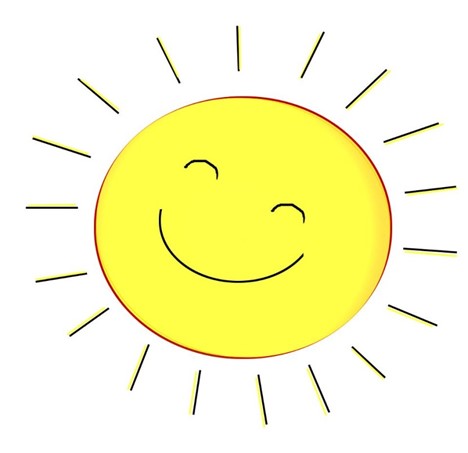
Yes, it is this time of the year again.
Happy US Independence Day dear relatives, friends, and readers.
May you all be safe and have lots of fun.

Bambi's Thoughts

Yes, it is this time of the year again.
Happy US Independence Day dear relatives, friends, and readers.
May you all be safe and have lots of fun.


This post is a brief musical tribute to Ms. Renée Claude (born Bélanger). Ms. Claude was a highly talented French-Canadian singer, pianist, and actress (https://shorturl.at/qwFUQ). Born in Montreal on the third of July, 1939, she died in 2020 at the age of 80.
The first piece, “Tu trouveras la paix dans ton coeur” [You Will Find Peace in Your Heart], is a classical song when grieving a loved one. The second piece, Mr. Léo Ferré’s “Avec le temps” [With Time] is one of the most beautifully sad French love songs.
Merci chère Madame Rénée Claude. Yes, thank you and may your memory be eternal.


In a few hours, it will be July 2nd. This is the National Anisette Day (https://shorturl.at/Ec0hs), which honours “liqueur derived from aniseed.
Aniseed originates “from the anis herb” that gives it “its licorice or fennel flavour“. But what is Arak? It is a traditional STRONG anise-based spirit, or liquor, commonly drunk in Lebanon and other Middle Eastern countries. Of note, one must dilute it with water and ice before drinking it. It traditionally goes hand in hand with the delicious Lebanese food.
When she was about three years old, Bambi used to enjoy telling her mom that she had tooth pain just to get a drop of “Arak“, on a piece of cotton, to put on the so-called painful area. It is incredible how much we can remain true to ourselves, while changing, after fifty years of aging. Indeed, at her age now, Bambi adores the taste of fennel in food, especially when cooked by her spouse :). Yet, she is not much into Arak or alcohol drinking anymore. For instance, she recently spent about a month in Beirut. She did not have a drop of Arak or any other alcoholic drink.
Similarly, a few years ago, she travelled for work to Scotland and from there visited Beirut to see her family. Her brother-in-law asked her if she enjoyed drinking whisky while in Edinburgh. When she said she did not taste the latter, he was quite amused. For him, it was like going to Rome and omitting to visit the Vatican. Anyhow, she still enjoys spending time with family members or friends while they drink Arak and have a good time. She can even laugh, and feel drunk, by proxy :).
Talking about fun moments, as per its title and as a reminder, this post is mainly meant to share Zahle’s Arak song, which Bambi likes a lot; stay tuned please!
In the short video found on YouTube, the men singing the Arak song are a group of Lebanese-American tourists visiting their home city, Zahle. They seem to have much fun singing together its Arak song :), which lyrics are about the following: the significance of Zahle to them, how much they enjoy Arak, how they forget their worries and how the 2 dollars in their pocket start being perceived as $2 million dollars when they drink, etc.
Before sharing the short, joyful song, please let’s take the time to appreciate the beauty of Zahle, as captured on the UNESCO (United Nations Educational, Scientific and Cultural Organization)’s website (https://shorturl.at/B2IQf). Of note, since 2013, Zahle is a UNESCO-protected city in the category of “creative gastronomy”.
From the same UNESCO website, Zahle is described as follows: “Zahlé, with a population of approximately 150,000 inhabitants is celebrated in Lebanon and throughout the region for its pleasant climate and traditional cuisine. The capital and largest city of the Beqaa Governorate in Lebanon, Zahlé is proud of its celebrated gastronomy as well as of the fifty poets and writers born in the city over the past century. Known as the “Bride of the Beqaa”, and the “Neighbor of the Gorge”, due to its geographical location and natural beauty, Zahlé is also known as the “City of Wine and Poetry”. Zahlé´s culture has long revolved around its grapes, wine and arak, the distilled anise-flavored drink that has traditionally been served in cafés at any time of the day. Zahlé´s most important cultural event is the Festival of the Vine, traditionally held each September, during which concerts, plays, poetry readings and artistic exhibitions are organized daily over the course of several weeks” (https://shorturl.at/B2IQf).
Following Zahle’s picture, if you wish, you can enjoy an 8-minute-long YouTube English video about Château Ksara, a winery located near Zahle.
As you have guessed, this post ends with the Arak song. Long live vacation time and group singing. Long live Lebanon’s Zahle and its Arak :)!
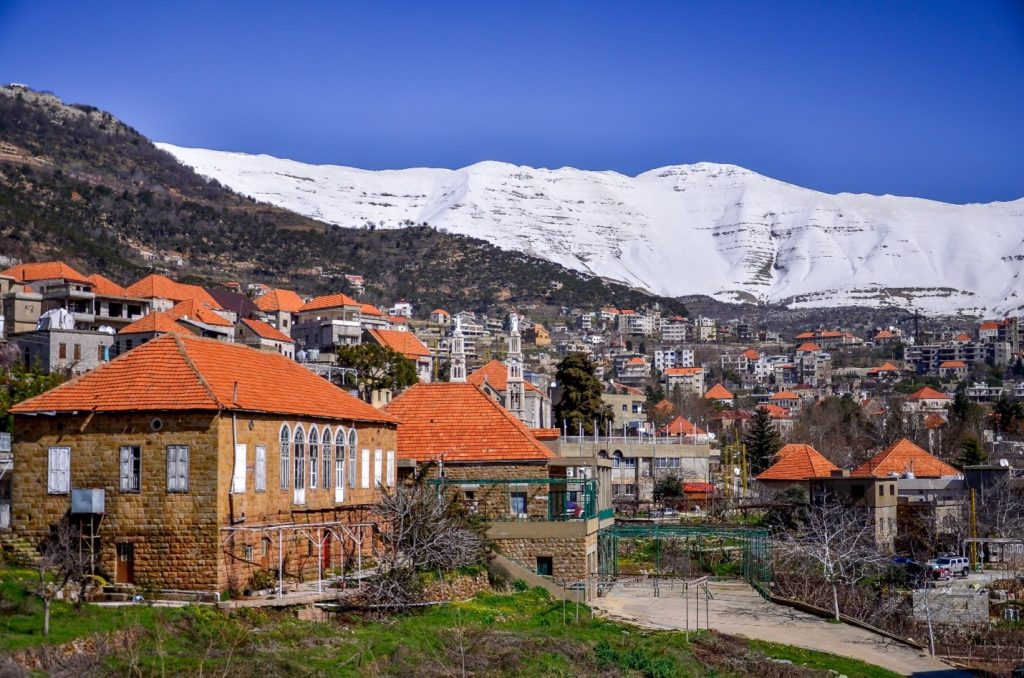


Yesterday’s post featured a love song.
With much love, today’s post is devoted to Canada.
Canada is neither a “postnational state” (hello Mr. Trudeau), nor a “51st state” (hi Mr. Trump). Indeed, it is much bigger and more beautifully unique than these two SAD visions of self-dismissiveness and antagonistic, provocative language.
Although far from being perfect, Canada has flaws along with glories. Contrary to other places, it is surely one of the world’s most peaceful and welcoming countries.
For all these reasons and beyond, Canada deserves to be respected, protected, deeply loved, and celebrated, summer after summer and all year long.
Thank you, and Happy Birthday, Canada!


What does love mean to you: romantically or in general?
How to cultivate self-love and how to give love?
In what ways can you learn to be loved and how to love?
What other lessons about love have you learned thus far?
How to survive, or end, toxic relationships and how to strengthen healthy ones?
How does love change the world?
Many questions… of course, each answer is unique.
If you wish, you can find an English translation of the beautiful lyrics of Mr. Florent Pagny’s “Savoir aimer” [Knowing How to Love] song at this link: https://shorturl.at/gydXJ . Thanks to him and to Ms. Hiba Tawaji for this great performance.
As far as Bambi is concerned and to relax, she will listen to this song one more time before sleep while wishing you a good night (or a nice day), dear readers.


Following a warm and sunny day yesterday, it is + 17 degrees Celsius in Sackville, NB, feeling like + 13 to be more precise. Because of that, perhaps it is a good timing to listen to Mr. Jonathan Dassin singing for Indian Summer? The latter is a summerlike weather, which occurs in the fall, typically following the first frost.
Regardless of the weather and North American Indian summers, one thing is sure: it is moving to listen to a young man paying tribute to his late dad. Thank you, Mr. Jonathan Dassin, for making Bambi dream of her favourite season of the year while remembering your most talented father.
Of note, the late AND great Joe Dassin died too young (41) of a heart attack, during a vacation to Tahiti, on August 20, 1980. At the time, Bambi (8) and her family were visiting Moscow (along with Kiev and Leningrad). Mr. Joe Dassin’s music started to suddenly play at their hotel, all day long (during all meals), from early in the morning until late at night. Her dad inquired about it and this is how the family learned about the tragic news. Everyone was speechless then, deeply affected by his loss… May his memory be eternal.
To conclude this brief musical post, whether you are currently in the middle of a heat wave or in a cooler season or environment, may you all have a good time, dear readers. Life can be too short. Let’s make the best of of it while it lasts.

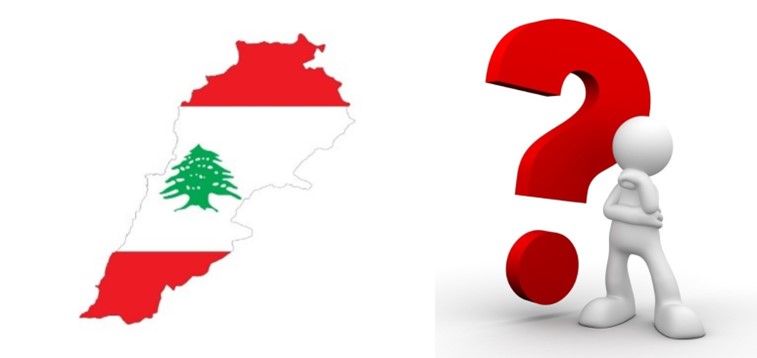
Bambi learned from Naharnet that “Hezbollah hailed what it called its ally Iran’s victory over Israel after 12 days of war, declaring it the start of a “new historical phase“. “In a statement, it offered its “most sincere congratulations” to the Islamic republic, praising its “glorious divine victory” (https://tinyurl.com/434xb2pv).
What can be “divine” in about “at least 610 civilians killed” in Iran “and more than 4,700 wounded in the fighting”? And what is divine in 28 killed Israeli civilians” (https://tinyurl.com/434xb2pv).
With all due respect to any Lebanese citizen voices supporting this point of view of Hezbollah out of political or ideological convictions (it is their right), Bambi will ask the Hezbollah officials the following: can we please leave God out of the war equation and from the resulting suffering of all the innocent victims of war?
Perhaps such request is an impossible one when we are too blinded by our Islamist ideology and vision of the world and/or when we are being blinded by anger or hate toward Israel (with or without a justified reason)?
Regardless, Bambi urges Hezbollah not to insult the intelligence of the people of Lebanon or of their loved ones abroad. The latter, and she will speak for herself, are sick and tired of seeing their birth country taken hostage in regional conflicts or being dragged into the war of others.
This being said, Hezbollah (already hit hard) and the official Lebanon showed wisdom recently during this past round of direct Iran-Israel (+ USA) war. Regardless of the motivation behind it, bravo for the restraint.
May reason, peace, and love know how to find their ways into the Middle East and in each person’s heart and mind. May those who have lost wars have the wisdom to accept their loss and may the region finally move forward toward more safety and stability. May those who think that they won refrain from more arrogance and cruelty. May all the leaders involved know how to compromise to allow ALL the Middle Eastern innocent populations to live and sleep without fear, whether they reside in Israel, Iran, Palestine, Lebanon, Yemen, Irak, Syria, etc. Same wishes for the people of the United States of America and of the entire world, including but not limited to Sudan, Ukraine, Russia, China, Haiti, Canada, Europe, Australia, New Zealand, etc.
Enough of armed conflicts between nations or tribes, at times fuelled by powerful countries for economic reasons. Related to the latter, Bambi will always recall how all the so-called civilized, European countries used to host the Lebanese civil war warlords to discuss to reach ceasefires and solution while selling each fighting group weapons that kept them fighting for fifteen years.
Was there something “divine” about civil war back then? No, even if each fighting group thought it was doing something “holy”, even though it was cruel or criminal. Is there something “divine” about the outcome of the current Israel-Iran war? Of course not. So, please leave Allah/God/G-d/No Gods out of war games and power struggles.


Over the past three years, Bambi had at least one post annually devoted to the perception or meaning of time, as you can see further below.
Today, with much gratitude, she is honoured to share an inspiring, beautiful poem by Dr. Chawki Hitti. She hopes that you will enjoy reading his original French text or its English translation following it, thanks to her genuinely loyal friend, Mr. Google Translate.
Regardless of your own time perception or attitude, life stage, or where you are at in the transition of time, may you all be well, dear readers, living fully in the present moment.
—
“Titre: Je suis le Temps (par le Dr. Chawki Hitti)
Le temps n’existe pas, c’est moi le temps,
Je suis l’écho, je suis le battement.
Le temps ne passe pas, c’est moi qui m’efface,
C’est moi qui marche, c’est moi qui me lasse.
Je traverse les heures comme on traverse un pont,
Mais les heures ne sont que des noms que je donne.
Je suis la rivière et le courant,
Le sablier sans sable, l’horloge sans cadran.
Le temps n’est pas un fleuve, il n’a pas de source,
C’est moi qui dessine sa propre course.
Le passé n’est qu’un souvenir que je visite,
Le futur, un mirage que mon esprit suscite.
Je suis l’instant, je suis le frisson,
Je suis l’aube, le crépuscule et le sillon.
Ce n’est pas le temps qui me pousse en avant,
C’est mon souffle qui crée le mouvement.
Le temps ne vieillit pas, c’est moi qui change,
C’est mon visage que l’espace dérange.
Les rides ne sont pas des traces du temps,
Elles sont des chemins où j’ai marché longtemps.
Je suis le peintre, je suis la toile,
Je suis la flamme, je suis l’étoile.
Il n’y a pas de temps, il n’y a que moi,
Un voyageur qui s’invente des lois.
Le temps ne fuit pas, il ne s’effondre pas,
C’est moi qui coule entre mes propres pas.
Quand je m’arrêterai, le temps cessera,
Car le temps, c’est moi. Rien d’autre que ça”.
—
“Title: I Am Time (by Dr. Chawki Hitti)
Time does not exist, I am time.
I am the echo, I am the beat.
Time does not pass, it is I who fade away.
It is I who walk, it is I who tire.
I cross the hours as one crosses a bridge.
But the hours are only names I give.
I am the river and the current.
The hourglass without sand, the clock without a dial.
Time is not a river, it has no source.
It is I who draw its own course.
The past is only a memory I visit.
The future is a mirage my mind conjures up.
I am the moment, I am the shiver.
I am the dawn, the dusk, and the furrow.
It is not time that pushes me forward.
It is my breath that creates movement.
Time doesn’t age, it’s me who changes,
It’s my face that space disturbs.
Wrinkles are not traces of time,
They are paths I’ve walked for a long time.
I am the painter, I am the canvas,
I am the flame, I am the star.
There is no time, there is only me,
A traveler who invents laws for himself.
Time doesn’t flee, it doesn’t collapse,
It’s me who flows between my own steps.
When I stop, time will cease,
For time is me. Nothing other than that”.
—

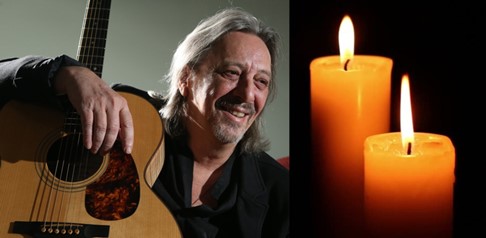
As reported in Radio-Canada, Mr. Serge Fiori (1952-2025) was born in Montreal to a father of Italian heritage and a French-speaking mother (https://shorturl.at/mO46W).
In the early 1970s, he founded the group “Harmonium”, along with Mr. Michel Normandeau (guitar, vocals) and Mr. Louis Valois (bass) (https://shorturl.at/mO46W).
Clearly, this GREAT singer/songwriter and guitarist will remain ingrained in the collective memory and musical legacy of his BELOVED Québec, enriching the national and international French musical landscape.
May God comfort all those touched by his life, smiles, and beautiful, soothing music.
May his soul rest in peace. May his memory be eternal.

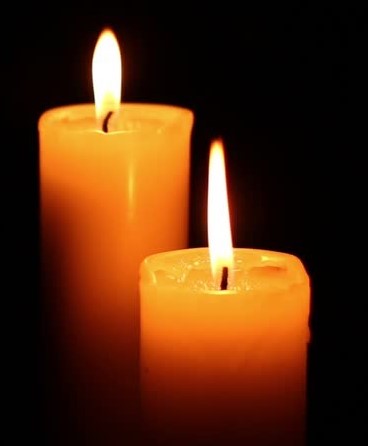
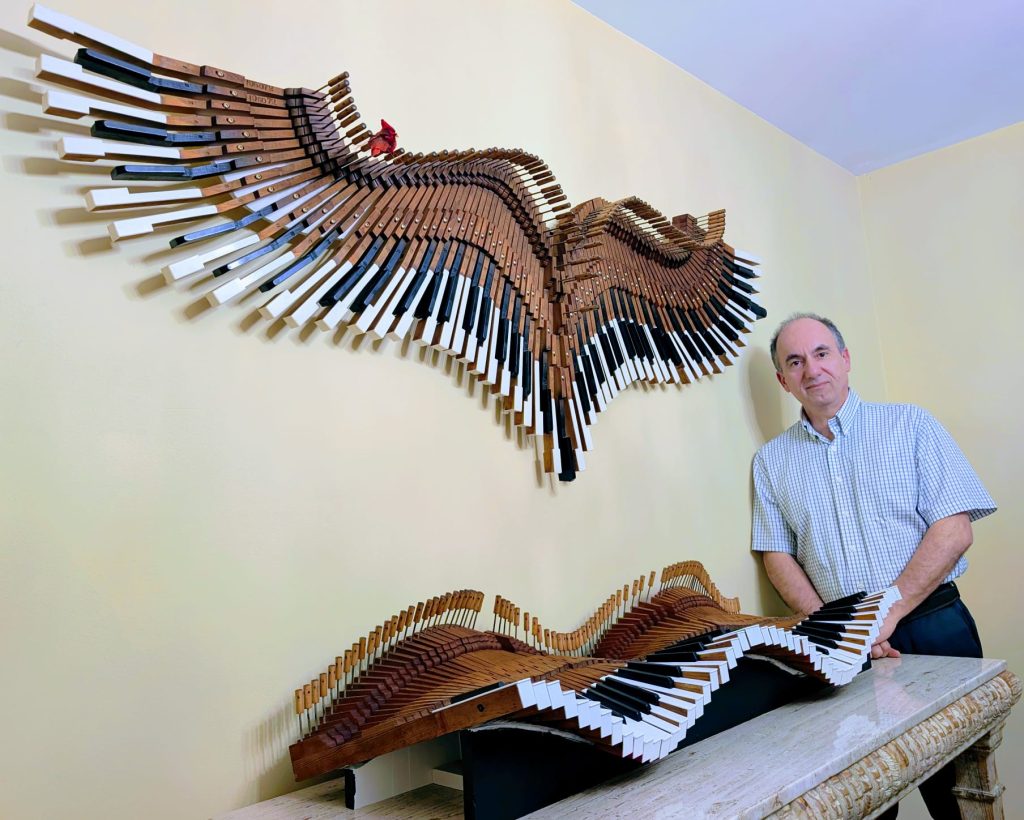
To begin with, the two pieces shared in this post (the sad picture and the inspiring article) are not directly related to each other. Indeed, the article was written in Montreal, Canada, chronologically before the picture-related tragedy of Damascus, Syria.
Stated differently, the two items are the product of a pure coincidence. However, Bambi made the decision of sharing them with you, dear readers, in a single post because one can ideally act as an internal barrier to the other. Of course, practically speaking, one needs critical thinking, along with a will to respect ALL human lives, to live, an to love.
Bearing the above in mind, it is time to dive into this post by starting with the following words of wisdom: “The twentieth century will have taught us that no doctrine in itself is necessarily a liberating force: all of them may be perverted or take a wrong turning; all have blood on their hands – communism, liberalism, nationalism, each of the, great religions, and even secularism. Nobody has a monopoly on fanaticism; nobody has a monopoly on humane values” (Mr. Amine Maalouf, “In the Name of Identity: Violence and the Need to Belong” or “Les identités meutrières”).
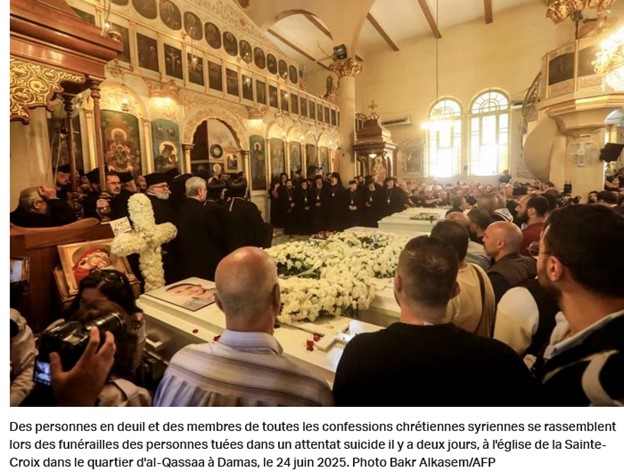
Whether the perpetrators of violence act in the (so-called) name of this or that fanatic group, and/or whether the victims come from this or that community, one thing is sure: Bambi’s heart breaks for the innocent victims, regardless of whom they are or where they reside in the bloody Middle East or anywhere else in the world, including Canada.
This being said, today’s unacceptable suicide bombing attack took place at a Greek Orthodox church in Damascus, Syria… May everyone’s memory be eternal.
From the L’Orient Le Jour (https://tinyurl.com/4y83eh2x), we learn that “the attack, which left 25 dead and more than 60 injured, was claimed Tuesday by a little-known Sunni extremist group, Saraya Ansar al-Sunna, while Syrian authorities attributed it to the jihadist group Islamic State (IS)“.
What is highly worrisome is the following demographic trend: “Syria’s Christian population has shrunk from one million before the 2011 war to fewer than 300,000 today, according to experts, due to forced displacement and exile. The Vatican has expressed fears of a further exodus of Christians from the Middle East following the attack” ( (https://tinyurl.com/4y83eh2x)
You might find the senseless violence against the Middle Eastern’s Christians of Syria, Irak of Egypt sad or even depressing. It surely is. For Bambi, it reminds her of the progressive disappearance of other historical minorities from the Middle East, including Arab Jews or, more recently, Irak’s Yazidis (https://tinyurl.com/4tdxtwzk)
What can each one of us do in order to remain connected to our humanity, despite the grief, which includes anger? How can we chose or re-chose nonviolence and even love? Perhaps Dr. Chawki Hitti’s beautiful evidence-based article on nonviolence can inspire us?
Below you can read the original French text, preceded by an English translation (in bold), thanks to Mr. Google Translate, Bambi’s beloved online friend.
May peace and love prevail in everyone’s hearts and in the entire Middle East.
—
“Title:
The Genesis of Nonviolence: A Scientific and Conscious Approach
Abstract
This article explores the hypothesis that nonviolence is not simply an ethical practice or a moral choice, but a natural law inscribed in the order of the universe. Through an interdisciplinary approach combining biology, psychology, philosophy, and spiritual traditions, we argue that living nonviolently requires an elevation of consciousness capable of transcending the ego. This level of consciousness allows human beings to harmonize with the profound dynamics of nature.
Introduction
Nonviolence is often perceived as a sociopolitical strategy or a moral principle, championed by historical figures such as Gandhi and Martin Luther King Jr. But a more fundamental question emerges: what if nonviolence were, above all, a universal natural law, an intrinsic structure of life to which human beings may (or may not) align?
This article proposes that nonviolence is not simply a rule imposed from outside, but a fundamental reality of the living world, access to which depends on a heightened level of consciousness capable of transcending egocentric conditioning.
—
1. Nonviolence in the Laws of Nature
1.1 Cooperation and Harmony in Living Things
Although the classical view of nature has long emphasized competition and the law of the strongest, modern research in evolutionary biology (Nowak, 2006; Wilson, 2012) demonstrates that cooperation and symbiosis are essential drivers of survival. Thriving ecosystems depend on a balance and profound interdependence between species.
1.2 Balance and Ecological Reciprocity
Physical and ecological laws emphasize that the universe tends toward states of equilibrium. Any violent disruption of this balance leads to systemic disorder and collapse, illustrating that violence is a disruption of natural dynamics, while nonviolence, through cooperation and regulation, promotes the sustainability of systems.
—
2. The Ego: An Obstacle to Natural Harmony
2.1 Ego Separation
Human beings develop an ego that is self-aware, but often disconnected from the whole. This separation fuels defensive, competitive, and violent behaviors. Neuroscience (Damasio, 1994; Siegel, 2007) reveals that fear and self-preservation strategies are activated by ancient neurological patterns, often incompatible with deep cooperation.
2.2 Violence and Unconsciousness
Violence could be understood as a manifestation of unconsciousness about universal interdependence. When human beings act under the influence of an isolated ego, they break their connection with the natural dynamics of harmony.
—
3. NonViolence: A Manifestation of Higher Consciousness
3.1 The Yoga Sutras of Patanjali: A Universal Ethic
In the Yoga Sutras of Patanjali, the foundational text of yogic philosophy, nonviolence or ahimsa is defined as the first and most essential of the Yamas (ethical principles). It is not limited to the absence of physical violence, but extends to all actions, words, and thoughts that could cause harm. It encourages universal compassion and active kindness toward all beings.
Sutra 2.35 states:
“When one is firmly established in nonviolence, all hostility ceases in one’s presence.”
(Source: Integral Yoga® Magazine, The Art of Living).
This statement suggests that true nonviolence is not mere abstention, but a transformative force that impacts the social and energetic environment.
3.2 Mystical and Neuroscientific Convergences
Mystical traditions—whether Buddhist, Sufi, or Christian—teach that true nonviolence is only possible when the ego is transcended. Contemporary discoveries in contemplative neuroscience (Varela et al., 1991; Davidson & Goleman, 1977) confirm that deep meditative states can reconfigure neural circuits by decreasing aggression and increasing empathy.
Authentic nonviolence therefore appears to emerge spontaneously from an expanded and connected state of consciousness, rather than from a mere moral effort.
—
4. Ethical and Societal Implications
4.1 From Behavioral Education to Conscious Education
While nonviolence stems from natural alignment and heightened awareness, it would be reductive to limit it to behavioral injunctions. A truly effective educational approach should integrate the development of mindfulness, compassion, and emotional intelligence as fundamental pillars.
4.2 Nonviolence as a Sustainable Solution
Peace mechanisms imposed by laws or external constraints remain fragile as long as they are not accompanied by inner transformation. Nonviolence, experienced consciously, offers a more sustainable and deeply rooted path to resolving both individual and collective conflicts.
—
Conclusion
Nonviolence, far from being a simple social construct or a moral ideal, is akin to a universal natural law. However, its true attainment requires a profound transformation of consciousness, transcending the ego and its conditioning. Mystical traditions, yogic teachings, and neuroscientific advances converge to affirm that nonviolence emerges from an experience of the fundamental unity between self and the world.
This perspective opens new horizons for interdisciplinary research and invites our societies to rethink their educational, political, and social strategies, directing efforts not only toward controlling behavior, but also toward elevating human consciousness”.
—
References
Nowak, M. A. (2006). Five Rules for the Evolution of Cooperation. Science.
Wilson, E. O. (2012). The Social Conquest of Earth. Liveright.
Damasio, A. (1994). Descartes’ Error: Emotion, Reason, and the Human Brain. Putnam.
Siegel, D. J. (2007). The Mindful Brain. Norton.
Varela, F. J., Thompson, E., & Rosch, E. (1991). The Embodied Mind. MIT Press.
Davidson, R. J., & Goleman, D. J. (1977). The Role of Attention in Meditation and Hypnosis: A Psychobiological Perspective. American Psychologist.
Integral Yoga® Magazine, The Art of Living. (s.d.). Ahimsa in the Yoga Sutras.
—
Titre:
La Genèse de la Non-Violence : Une Approche Scientifique et Conscientielle
Résumé
Cet article explore l’hypothèse selon laquelle la non-violence n’est pas simplement une pratique éthique ou un choix moral, mais une loi naturelle inscrite dans l’ordre de l’univers. À travers une approche interdisciplinaire croisant la biologie, la psychologie, la philosophie et les traditions spirituelles, nous défendons l’idée que vivre la non-violence requiert une élévation de la conscience capable de transcender l’ego. Ce niveau de conscience permet à l’être humain de s’harmoniser avec la dynamique profonde de la nature.
Introduction
La non-violence est souvent perçue comme une stratégie sociopolitique ou un principe moral, défendu par des figures historiques comme Gandhi et Martin Luther King Jr. Mais une question plus essentielle émerge : et si la non-violence était avant tout une loi naturelle universelle, une structure intrinsèque du vivant à laquelle l’être humain peut (ou non) s’aligner ?
Cet article propose que la non-violence n’est pas une simple règle imposée de l’extérieur, mais une réalité fondamentale du monde vivant, dont l’accès dépend d’un niveau de conscience élevé, apte à transcender les conditionnements égocentriques.
—
1. La Non-Violence dans les Lois de la Nature
1.1 Coopération et Harmonie dans le Vivant
Bien que la vision classique de la nature ait longtemps mis en avant la compétition et la loi du plus fort, les recherches modernes en biologie de l’évolution (Nowak, 2006 ; Wilson, 2012) démontrent que la coopération et la symbiose sont des moteurs essentiels de la survie. Les écosystèmes florissants dépendent d’un équilibre et d’une interdépendance profonde entre les espèces.
1.2 Équilibre et Réciprocité Écologique
Les lois physiques et écologiques soulignent que l’univers tend vers des états d’équilibre. Toute perturbation violente de cet équilibre entraîne des désordres et des effondrements systémiques, illustrant que la violence est une rupture de la dynamique naturelle, alors que la non-violence, par la coopération et la régulation, favorise la pérennité des systèmes.
—
2. L’Ego : Un Obstacle à l’Harmonie Naturelle
2.1 La Séparation Égotique
L’être humain développe un ego conscient de lui-même, mais souvent déconnecté de la totalité. Cette séparation alimente des comportements défensifs, compétitifs et violents. Les neurosciences (Damasio, 1994 ; Siegel, 2007) révèlent que la peur et les stratégies d’auto-préservation sont activées par des schémas neurologiques anciens, souvent incompatibles avec la coopération profonde.
2.2 Violence et Inconscience
La violence pourrait être comprise comme une manifestation d’inconscience de l’interdépendance universelle. Lorsque l’être humain agit sous l’influence d’un ego isolé, il rompt son lien avec la dynamique naturelle d’harmonie.
—
3. La Non-Violence : Une Manifestation de Conscience Élevée
3.1 Les Yoga Sutras de Patanjali : Une Éthique Universelle
Dans les Yoga Sutras de Patanjali, texte fondamental de la philosophie yogique, la non-violence ou Ahimsa est définie comme la première et la plus essentielle des Yamas (principes éthiques). Elle ne se limite pas à l’absence de violence physique, mais s’étend à toutes les actions, paroles et pensées susceptibles de nuire. Elle invite à une compassion universelle et à une bienveillance active envers tous les êtres.
Le Sutra 2.35 affirme que :
“Lorsqu’on est fermement établi dans la non-violence, toute hostilité cesse en sa présence.”
(Source : Integral Yoga® Magazine, The Art of Living).
Cette déclaration suggère que la non-violence véritable n’est pas une simple abstention, mais une force transformatrice qui agit sur l’environnement social et énergétique.
3.2 Convergences Mystiques et Neuroscientifiques
Les traditions mystiques — qu’elles soient bouddhistes, soufies ou chrétiennes — enseignent que la véritable non-violence n’est possible que lorsque l’ego est transcendé. Les découvertes contemporaines en neurosciences contemplatives (Varela et al., 1991 ; Davidson & Goleman, 1977) confirment que des états méditatifs profonds peuvent reconfigurer les circuits neuronaux en diminuant l’agressivité et en augmentant l’empathie.
La non-violence authentique semble donc émerger spontanément d’un état de conscience élargi et connecté, plutôt que d’un simple effort moral.
—
4. Implications Éthiques et Sociétales
4.1 De l’Éducation Comportementale à l’Éducation Conscientielle
Si la non-violence découle d’un alignement naturel et d’une conscience élevée, il serait réducteur de la limiter à des injonctions comportementales. Une approche éducative véritablement efficace devrait intégrer le développement de la pleine conscience, de la compassion, et de l’intelligence émotionnelle comme des piliers fondamentaux.
4.2 La Non-Violence comme Solution Durable
Les mécanismes de paix imposés par des lois ou des contraintes externes restent fragiles tant qu’ils ne s’accompagnent pas d’une transformation intérieure. La non-violence vécue de manière consciente offre une voie plus durable et profondément ancrée pour la résolution des conflits, tant individuels que collectifs.
—
Conclusion
La non-violence, loin d’être une simple construction sociale ou un idéal moral, s’apparente à une loi naturelle universelle. Cependant, son accès réel suppose une transformation profonde de la conscience, transcendant l’ego et ses conditionnements. Les traditions mystiques, les enseignements yogiques et les avancées neuroscientifiques convergent pour affirmer que la non-violence émerge d’une expérience de l’unité fondamentale entre soi et le monde.
Cette perspective ouvre des horizons nouveaux pour la recherche interdisciplinaire et invite nos sociétés à repenser leurs stratégies éducatives, politiques et sociales, en orientant les efforts non seulement vers la maîtrise des comportements, mais vers l’élévation de la conscience humaine”.
—
Références
Nowak, M. A. (2006). Five Rules for the Evolution of Cooperation. Science.
Wilson, E. O. (2012). The Social Conquest of Earth. Liveright.
Damasio, A. (1994). Descartes’ Error: Emotion, Reason, and the Human Brain. Putnam.
Siegel, D. J. (2007). The Mindful Brain. Norton.
Varela, F. J., Thompson, E., & Rosch, E. (1991). The Embodied Mind. MIT Press.
Davidson, R. J., & Goleman, D. J. (1977). The Role of Attention in Meditation and Hypnosis: A Psychobiological Perspective. American Psychologist.
Integral Yoga® Magazine, The Art of Living. (s.d.). Ahimsa in the Yoga Sutras.
